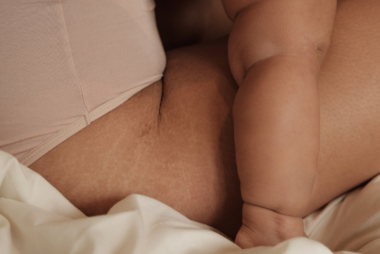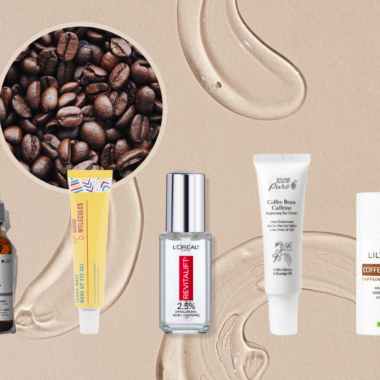Pregnancy brings various changes to your body, and the experience is unique for everyone. From pigmentation changes and heightened sensitivity to vascular shifts and specific skin conditions, your skin goes through a lot. Unfortunately, many of these changes persist postpartum, requiring extra care and attention.
The postpartum period begins right after childbirth and can last anywhere from six weeks to six months. During this time, new mothers often focus their energy on caring for their babies, leaving little room for self-care. This can delay the skin’s recovery after pregnancy. While some changes may improve naturally, others linger, and new concerns, like breakouts, may emerge.
Understanding Postpartum Skin Changes
After childbirth, the skin begins adapting to hormonal changes. The significant drop in estrogen and progesterone levels – elevated during pregnancy – can make skin feel unpredictable. Sleep deprivation often dulls the complexion and raises stress hormone levels, while breastfeeding can lead to dehydration, affecting both the body and the skin.
These changes can result in:
- Hormonal acne
- Hyperpigmentation
- Extreme dryness
- Oiliness due to fluctuating moisture levels
- High skin sensitivity
- A dull complexion
A well-crafted postpartum skincare routine can help the skin adapt to these changes and support recovery with gentle, nourishing products.
Postpartum Skincare Tips
As a new mother, follow these tips to manage postpartum skin needs, from hydration and gentle cleansing to addressing common concerns like irritation and hyperpigmentation.
1. Prioritize Rest
The postpartum period can be incredibly stressful as you focus on your baby’s well-being and adjust to new routines with limited sleep. However, prioritizing rest is essential for both your skin and overall health. Aim for 8-9 hours of sleep per night (including naps) to reduce stress, limit inflammation, and support healing of postpartum skin issues like acne and eczema.
2. Use Gentle Cleansers
Acne and skin dryness are common postpartum concerns. Choose a cleanser that effectively targets acne by removing dirt and excess oil while preserving the skin’s natural moisture barrier. Look for:
- Slightly acidic pH
- Hydrating ingredients
- Emollients and occlusives to lock in hydration
Recommendations:
- CeraVe Hydrating Facial Cleanser: Fragrance-free and perfect for sensitive skin.
- Murad Acne Control Cleanser: Targets acne and removes excess oil without irritation.
3. Stay Hydrated
Hydration is crucial postpartum, especially as frequent handwashing and dehydration from breastfeeding can dry out the skin. Use fragrance-free moisturizers regularly to combat dryness and soothe irritated skin.
Recommendations:
- Drunk Elephant B-Hydra Intensive Hydration Serum: Combats dryness and fine lines with sodium hyaluronate and fruit extracts.
- La Roche-Posay Hyalu B5 Pure Hyaluronic Acid Serum: Deeply hydrates and supports skin barrier repair.
- MMRevive Serum: Hydrates and repairs free radical damage, including hyperpigmentation.
4. Incorporate Targeted Treatments
Targeted treatments can address specific concerns like acne, hyperpigmentation, and overall skin balance. Opt for non-comedogenic and gentle formulations free from harsh actives.
Recommendations:
- Sunday Riley Power Couple Kit: Includes a lactic acid treatment and rejuvenating night oil to revitalize skin.
- First Aid Beauty Facial Radiance Pads: Gentle daily exfoliation for brighter, toned skin.
- SkinMedica 2.0 Lytera Pigment Correcting Serum: Reduces hyperpigmentation with a non-hydroquinone formula.
5. Always Use SPF
Pregnancy-induced hyperpigmentation can worsen with UV exposure. Use a broad-spectrum sunscreen daily to protect your skin from UVA, UVB, and visible light.
Recommendations:
- La Roche-Posay Melt-In Sunscreen Milk SPF 60: Hydrating and protective.
- Sun Bum Mineral SPF 50 Sunscreen Lotion: Moisturizes while shielding against UV rays.
Keep It Simple
Most postpartum skin changes are influenced by hormonal fluctuations and dehydration. Keep your routine simple and avoid introducing strong active ingredients like chemical exfoliants or retinoids until six months postpartum. If you do introduce actives, start with small amounts and increase usage gradually to minimize irritation.
Final Thoughts
Postpartum skincare isn’t just about reclaiming your pre-pregnancy glow—it’s about nurturing yourself during one of life’s most transformative phases. Focus on gentle cleansers, replenishing moisturizers, targeted treatments, and SPF to address common concerns like dryness, sensitivity, and hyperpigmentation. Remember, skincare is self-care, and prioritizing your skin health is an important part of embracing your postpartum journey.















